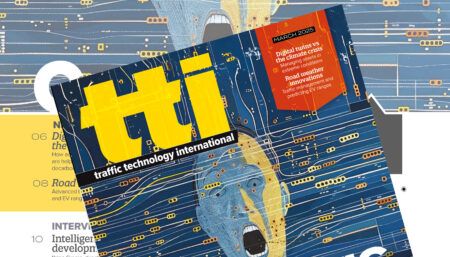China’s first ever large-scale road test initiative for intelligent connected vehicles has been launched as part of the Shanghai Intelligent and Connected Vehicle Demonstration Program, which will serve as a foundation for the country’s development of smart transportation and vehicle-to-vehicle (V2V) communications standards.
The launch of road testing represents a significant milestone for the Program, which was launched in October 2015. The first phase will now involve approximately 200 vehicles from the Shanghai Automotive Industry Corporation (SAIC), one of China’s largest domestic auto manufacturers, as well as from other participating automakers.
As additional car makers join the program, the aim is to have 1,000 intelligent and connected vehicles by 2017; 5,000 vehicles by the end of 2019; and 10,000 vehicles by 2020. The program is supported by Netherlands-based connective technology company NXP Semiconductors and Shanghai’s Tongji University through the NXP-Tongji University Joint Lab. The partnership was launched last year, and is dedicated to developing customized connected car solutions for the Chinese market, with the Lab using advanced technologies and products from NXP, as well as the company’s deep automotive expertise.
NXP and its Australian partner, Cohda Wireless, will provide secure V2V and vehicle-to-infrastructure (V2X) communications technology for cars and roadside infrastructure. Road testing will collect V2X communications data in real time from multiple test scenarios, including measurement of active safety, traffic management and information services.
Both the vehicles and transportation infrastructure units involved in the road tests use the newest generation of NXP’s RoadLINK system, which is based on the IEEE 802.11p wireless communication protocol, and is proven by 10 years of testing by multiple European and US government and professional institutions. Using the proven 802.11p wireless protocol instead of slower and less reliable cellular networks, the RoadLINK system delivers deterministic performance for safety-critical applications, while also providing higher levels of security and privacy protection.
“We are pleased to partner with SAIC and Tongji University to further advance the Shanghai Intelligent and Connected Vehicle Demonstration Program,” said Li Zheng, president of NXP Greater China. “Developing intelligent transportation systems is vital for building sustainable cities. As a global leader in secure connected vehicle solutions and autonomous driving platforms, we are truly honored to offer the proven reliability of RoadLINK technology and our deep automotive expertise for the creation of world-class intelligent transportation systems in China.”
Professor Wang Ping, director of the Intelligent and Connected Vehicle program at Tongji University, added, “A large-scale road test is a significant step in the progress of the demonstration program. We will continue cooperating with NXP and SAIC in order to satisfy the demands of the Chinese market, and to support the development of the intelligent vehicle industry in China.”




